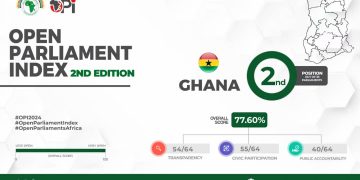IMF Conditionalities: Prior Action 2 – Implement an upfront weighted-average electricity tariff adjustment of at least 29 percent
Prior Action 2. Implement an upfront weighted-average electricity tariff adjustment of at least 29 percent
Overview
As part of the specific conditionality imposed by the IMF, Ghana was required to implement an upfront weighted-average electricity tariff adjustment of at least 29 percent. This condition was set with the aim of addressing the challenges faced by Ghana’s power sector, specifically related to cost recovery and financial sustainability.
The existing electricity tariffs in Ghana were likely insufficient to cover the actual costs associated with generating and distributing electricity. As a result, there was a significant shortfall in the power sector, where the revenue generated from tariffs was not enough to meet the operational and maintenance expenses. This situation created various difficulties, including limited investment in infrastructure, maintenance issues, and challenges in providing reliable and affordable electricity to consumers.
By implementing the upfront tariff adjustment, Ghana aimed to raise the electricity tariffs to a level that would more accurately reflect the true costs of producing and delivering electricity. This adjustment was crucial to improving cost recovery in the power sector, ensuring that the revenues generated from tariffs were adequate to cover the expenses incurred.
Failing to achieve the objective of bringing electricity tariffs closer to cost recovery and reducing the power sector shortfall could have significant implications. It could perpetuate the financial challenges in the power sector, impacting the sustainability of electricity supply and hindering investments in necessary infrastructure. This, in turn, could result in power outages, unreliable service, and adverse effects on economic activities.
Additionally, if the electricity tariffs were not adjusted to cover costs adequately, it could place an ongoing financial burden on the government. This would further exacerbate fiscal vulnerabilities and contribute to the overall debt burden, straining the country’s fiscal position.
Therefore, the implementation of the tariff adjustment was crucial for Ghana to improve the financial sustainability of the power sector, ensure proper cost recovery, and address the power sector shortfall. By meeting this specific conditionality, Ghana aimed to mitigate the challenges in the power sector, foster a reliable electricity supply, and strengthen the government’s fiscal position.
Policy Impact Analysis:
- Increased Cost of Electricity: The upfront tariff adjustment of at least 29 percent would result in a significant increase in electricity tariffs for consumers. This would directly impact citizens, particularly households and businesses, as they would face higher electricity bills. The increased cost of electricity can strain household budgets, reduce disposable income, and limit the ability of businesses to invest and expand, potentially leading to job losses and reduced economic activity.
- Affordability Challenges for Low-Income Households: Higher electricity tariffs can disproportionately affect low-income households who already struggle to meet their basic needs. For vulnerable populations, the increase in electricity costs can further exacerbate financial hardships, potentially forcing them to cut back on other essential expenses, such as food, healthcare, or education. This can contribute to increased poverty levels and worsen inequality within society.
- Impact on Productivity and Competitiveness: Businesses, particularly those in energy-intensive sectors, may face increased operating costs due to higher electricity tariffs. This can reduce their competitiveness in both domestic and international markets. Higher energy costs can also discourage investment in energy-intensive industries, limiting job creation and hindering economic growth in these sectors.
- Reliability of Electricity Supply: The power sector shortfall and financial challenges in the industry have contributed to issues with the reliability and stability of electricity supply in Ghana. Inadequate cost recovery has limited the funds available for infrastructure maintenance and investment, leading to frequent power outages and service disruptions. The upfront tariff adjustment aims to address these challenges, but if not implemented successfully, it could perpetuate the existing problems, negatively impacting citizens who rely on a consistent and reliable electricity supply for their daily lives and businesses.
- Potential Social Unrest: If the increased electricity tariffs impose a significant financial burden on citizens, especially for low-income households, it can lead to public dissatisfaction and potential social unrest. The affordability of basic utilities like electricity is essential for maintaining social stability, and any sharp increases in costs without corresponding improvements in service quality can strain the social fabric of the country.
- Indirect Economic Impact: The increase in electricity tariffs can have indirect consequences on various sectors of the economy. Higher energy costs can result in increased production costs for businesses, leading to potential price inflation for goods and services. This can impact consumers’ purchasing power and contribute to a higher cost of living, further straining household budgets.
- Implications for Government Finances: Failing to achieve adequate cost recovery in the power sector can place a continued financial burden on the government. Subsidizing electricity tariffs to keep them artificially low would require the government to allocate significant funds from the national budget. This can lead to fiscal vulnerabilities, including increased public debt, reduced resources for essential public services, and potential austerity measures in other areas.
Overall, the upfront tariff adjustment imposed by the IMF, while necessary to address the challenges in Ghana’s power sector, can have negative impacts on citizens. The increased cost of electricity, particularly for low-income households, affordability challenges, potential social unrest, and indirect economic effects are all important considerations.
Careful implementation and targeted mitigation measures should be put in place to alleviate the burden on vulnerable populations and ensure that the benefits of improved financial sustainability in the power sector are realized by all citizens.








